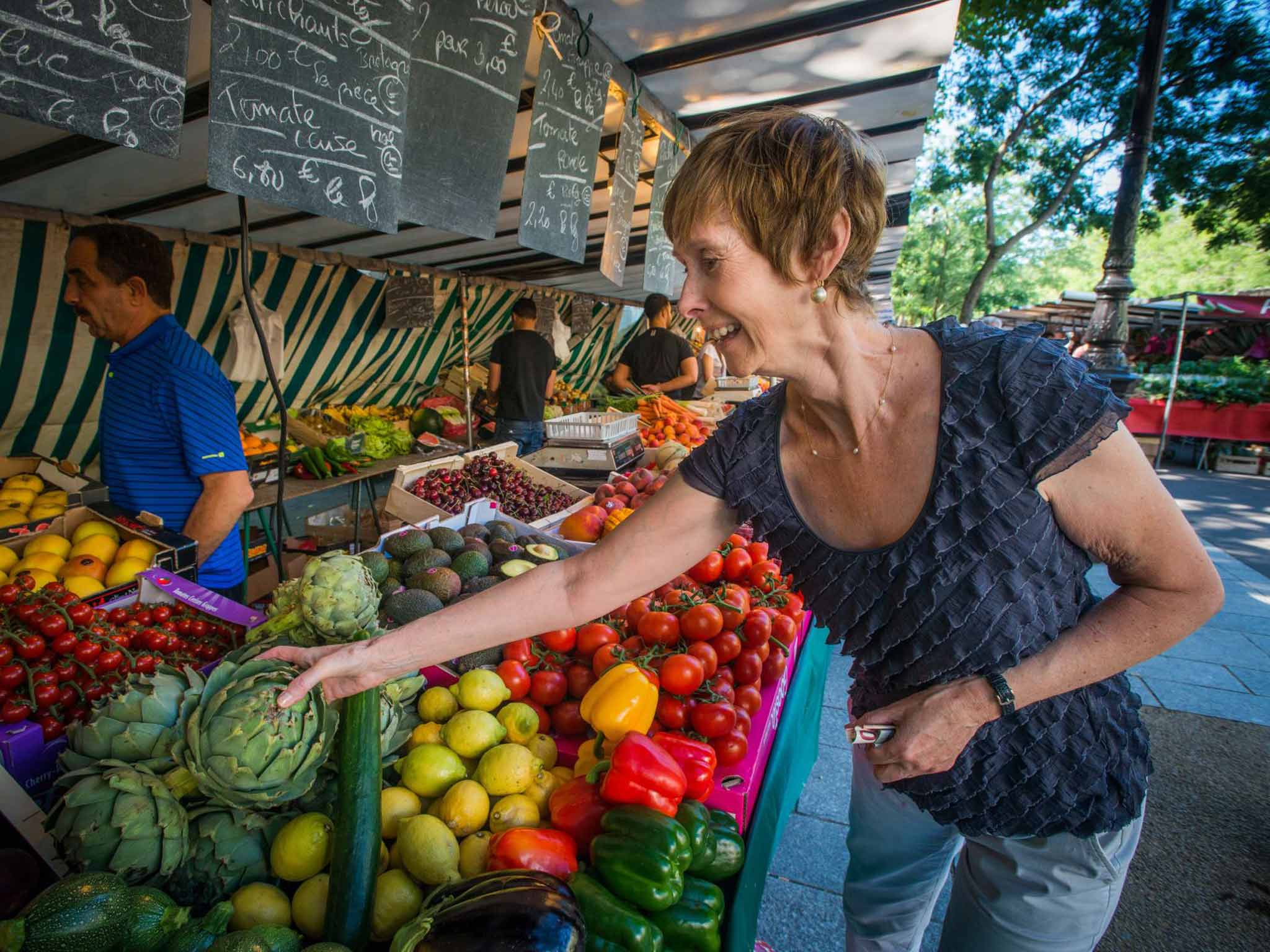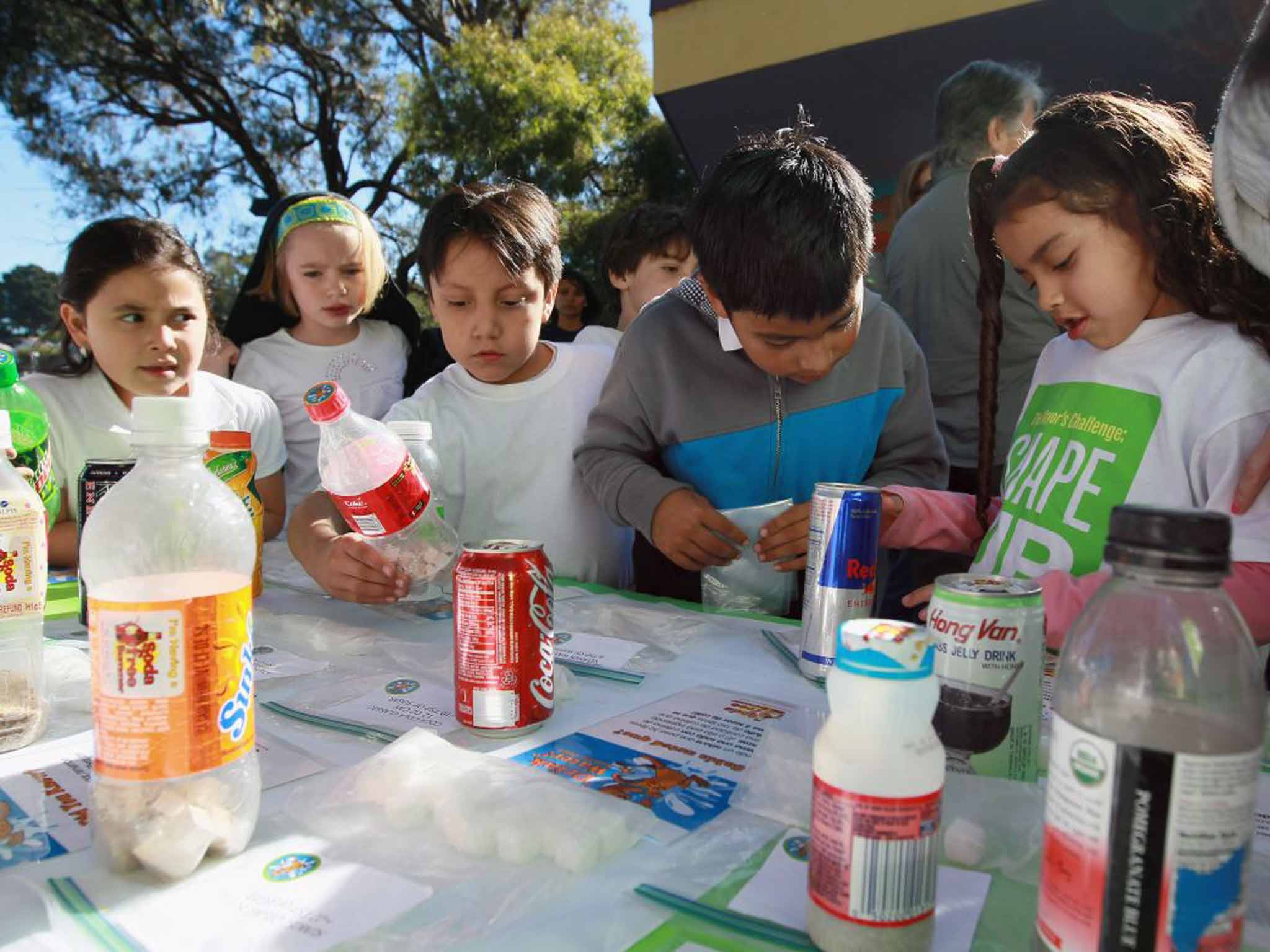Sugar levels in what we eat and drink: Why the tide may finally be turning against Big Food
Anne Penketh was so shocked to discover the level of added sugars even in 'healthy' products that she wrote a novel about the industry.

Your support helps us to tell the story
From reproductive rights to climate change to Big Tech, The Independent is on the ground when the story is developing. Whether it's investigating the financials of Elon Musk's pro-Trump PAC or producing our latest documentary, 'The A Word', which shines a light on the American women fighting for reproductive rights, we know how important it is to parse out the facts from the messaging.
At such a critical moment in US history, we need reporters on the ground. Your donation allows us to keep sending journalists to speak to both sides of the story.
The Independent is trusted by Americans across the entire political spectrum. And unlike many other quality news outlets, we choose not to lock Americans out of our reporting and analysis with paywalls. We believe quality journalism should be available to everyone, paid for by those who can afford it.
Your support makes all the difference.The first time I realised that I had unwittingly developed a close relationship with sugar was in the 1990s, when I was working in New York. The "natural" low-fat plain yoghurt I was eating for breakfast tasted unusually sweet.
A quick check on the product's label confirmed this and a nutritionist told me that manufacturers had been pouring in sugar to add texture and taste to replace the fat.
But it was only more recently, while based in Washington, that I began to wonder about the possible health effects of the hidden sugars in processed food. There, I was struck by the amount of sugar in bread. Then I discovered that these hidden, or added, sugars had crept into practically everything, from fizzy drinks to frozen pizzas and canned soup. They were not only in ready meals but in "healthy" foods such as sports drinks and cereal bars.
Even worse was that we appeared to be getting addicted to these sugary drinks and foods. Was I paranoid or were the food giants out to get me? I was so horrified by my discovery that I decided to set my debut novel, about an evil corporation, in the food industry in Washington.
The novel, Food Fight, is the story of how a food giant is brought down by a box of chocolates. But the book's message about the link between our consumption of these hidden sugars and the global epidemic of obesity and other avoidable diseases is deadly serious.
While I turned to fiction, Australian documentary maker Damon Gameau used his own body to reveal the bitter truth about hidden sugars by consuming 40 teaspoons of the stuff every day. Gameau's 60-day experiment, charted in That Sugar Film, resulted in him getting fatty liver and raising his risk of coronary problems.
The effects of hidden sugars, which have been added to processed foods for more than a generation, are there for all to see. One in five British 11 year olds is now obese, as food ads continue to cynically target children, and obesity statistics are surging across Europe, according to the World Health Organisation.
"The strength of the evidence is now enough to show a direct link with added sugars and obesity, diabetes and heart disease," Margo Wootan, the director of nutrition policy at the Center for Science in the Public Interest in Washington tells me. But, she adds, "the science is never going to be strong enough for the industry."
For years now, the food industry has got away with self-regulation, its representatives shifting blame on to children's lack of exercise or the parents' buying habits. But at last, the tide is turning against Big Food, accused of placing profits above public health.
"They're on the ropes," says child obesity specialist Robert Lustig, a professor at the University of California, San Francisco. He was among the first to sound the alarm about the health dangers from hidden sugars, and in particular from high fructose corn syrup (HFCS), a cheap and subsidised sweetener that has been widely used by food manufacturers since the 1980s.

My attention was caught in particular by the fact that, according to US department of agriculture figures, the amount of calories from HFCS consumed by Americans had gone from 0.5 pounds annually in 1970 to a whopping 63.8 pounds in 1999. After a very gradual slide, the total in 2013 was still 43 pounds per person. Over that same period, obesity and type 2 diabetes cases had exploded. Could Big Food have made us all sick?
"There's no doubt in my mind," says Lustig, as he rattles off the diseases associated with our consumption of added sugars, which, he says, include fatty liver disease and cancer. But still, the fightback by the industry's multi-billion lobbying and marketing machine goes on. A spokeswoman for the UK's Food and Drink Federation recently denounced the "hysterical food and nutrition messages ... by a range of stakeholders" which she said were "rarely backed by robust or up-to-date science".
What is the British government doing about this public health crisis? So far, not much. The official dietary guidelines on added sugars from the Department of Health have been in place for the last 24 years. But now, regulation is being threatened. A scientific advisory committee report has advised the Government to recommend halving the current targets of added sugars in the daily calorie intake to five per cent, after reviewing the latest scientific evidence on the link to obesity and type-2 diabetes. The sugar industry responded that "demonising one ingredient" would not "solve the obesity epidemic".
The final report by the independent group of experts is expected to be published later this year. Public Health England is looking into the effectiveness of a possible sugar tax and a clampdown on advertising. Its scientists and experts will follow up on the conclusions of the Scientific Advisory Committee on Nutrition before making recommendations to the Department of Health on whether to revise the dietary guidelines. But all this will take time.
A junior health minister, George Freeman, last month became the first government official to back a tax on sugary food and drinks, "where we can clearly show that the use of that leads to huge pressures on social costs". But he was quickly slapped down by Downing Street, which said that the Tory government would continue to work with the industry.
The World Health Organisation backs the five per cent target for added sugars in our daily calorie intake. Launching a report by the WHO on the soaring European obesity rates last month, Laura Webber of the UK Health Forum, pointed out that "self-regulation doesn't seem to have been working", and called for a tax on sugar-sweetened beverages as a starter.
Big Food has already anticipated a possible crackdown. PepsiCo is marketing Pepsi True, which proclaims that it contains "NO High Fructose Corn Syrup". Coca-Cola is advertising its fizzy drinks with "easy to read, colour-coded nutrition labels". Nestlé has launched low-sugar versions of its Cheerios cereals.
According to Lustig, "they are doing everything they can to convince us we don't need to get tough with them. They don't want to be regulated. It's their gravy train."
Another aspect of the dangers from hidden sugars that attracted my attention during my book research was the comparison with Big Tobacco. The cigarette manufacturers were sued in a series of trials over the link between lung cancer and cigarette smoking. There have been some obesity-related lawsuits in the United States, although nothing – yet – on the scale of the Big Tobacco trials.
In an editorial published by the British Journal of Sports Medicine, three specialists accused Big Food marketing of using "tactics chillingly similar to those of Big Tobacco". The Food and Drink Federation's director general, Ian Wright, said the comparison with Big Tobacco was "absurd and offensive".
In the absence of new guidelines on added sugars, what are we to do? Living in Paris as I do, it's easier to follow Marie-Antoinette's "let them eat cake" directive than "let them eat lettuce". Hidden sugars in processed foods are impossible to avoid. Voluntary measures by the food industry are not enough. For once, I wish the nanny state would intervene and help me curb the sweet tooth I never knew I had. In the meantime, I'm doing my best to stock up at the farmers' market.
Anne Penketh's novel 'Food Fight' is available on Amazon (paperback £7.99 Garstang Press, ebook by Endeavour Press £2.99)
Join our commenting forum
Join thought-provoking conversations, follow other Independent readers and see their replies
Comments